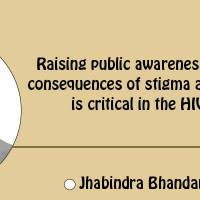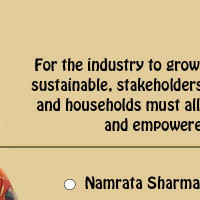- Friday, 5 September 2025
Essential Traits Of A Good Human
The debate about a good human is as long as human civilisation. The moment when humans began to live in a community, they began to make a dividing line between good and bad and marked favorable things as good and unfavorable ones as bad. In this sense, anything as good or bad exists in human-made discourse. Discourse is a spoken or written statement about something that exists in the universe. Words, sentences, and paragraphs inscribed in a human language constitute a discourse. These discourses are of various types – everyday conversation discourse, scientific discourse, literary discourse, legal discourse, political discourse, religious discourse, and many others. While some discourses have limited scope, others go beyond.
All discourses have power, little or much. According to Norman Fairclough (1989), power is exercised through discourse. He further argues that the powerful people construct discourse to serve their interests, which ordinary people take for granted. For him, discourse is a manufactured social practice where powerful people are major actors. In a similar line of argument, Michel Foucault (1926-1984) states that the power relation between the various social forces determines the type and nature of discourse. Understandably, any discourse has power, no matter who constructed it.
Dichotomy
Of different types of discourse, religious discourse is probably the most significant in human life because it puts God as Almighty, who controls the entire universe. Based on the assumption that the virtuous is rewarded and the wicked is punished, a principle of poetic justice, humans construct the binary opposition between vice and virtue, good and bad. Almost all holy scriptures proclaim that the virtuous are allowed to enter heaven, but the sinners are doomed to hell. Humans would thus like to do only virtuous things, hoping to ascend to heaven and try to avoid sinful acts due to the fear of hell. According to many religious creeds, all devotees to God are good, and those without interest in God are bad. Political creeds dictate that the member who acts according to the party line is good, whereas somebody who criticises the policies of the executive official is bad.
This distinction is made based on a value system that is ideologically loaded. That ideology is inculcated into the minds of ordinary human beings. However, there is no scientific evidence to prove this point. Many teachings of the preachers are based on superstitious grounds. In this sense, a good/bad distinction is made by powerful humans to serve their interests, as Foucault claimed. This distinction between good and bad is a human-made discourse. All discourses are based on the value system of a society. In a capitalistic value system, making money is the motto of everybody, so a man who makes money by hook or crook is great.
In some societies, even corrupt people are esteemed as great even if they become wealthy with bribe money. On the contrary, the public good becomes the central concern in a socialistic value system. In a society that worships power, a great person is one who has enormous power to control others. Because that person makes decisions on resource allocation or gives the order to put somebody in prison, they are regarded as great. Other great persons have innumerable followers; still, others who are physically strong and can win any fight are supposed to be great. And all great human beings are supposed to be good humans.
There is confusion about the meaning of great and good. We often think a powerful person is great; thus, the great person is naturally good. But this is not always true. All good humans are great, but not all great human beings are good. So, some fundamental characteristics are essential for being a good human. Some of those qualities are simplicity, honesty, helpfulness, ethical sense, altruism, and many more. A human characterised by simplicity is good, whereas the one with arrogance and pomposity of power is bad. A good human is marked by honesty and sincerity. The person who is sincere about responsibility is obviously good. Likewise, a person who is helpful and cooperative is good.
A person with a strict sense of ethics is also good, and above all, a good human is marked by a sense of altruism. An altruistic person is one who always thinks of others first. To put it in a nutshell, a person with good nature, moral character, good conduct, and good thinking is a good human. Those who lack such qualities are bad. It is thus essential to shift the paradigm of a good human based on power relations to a new paradigm based on humanitarian grounds. Discourses about good or bad can have a severe impact on life. While some discourses contribute to positive thinking, others lead to negativity. Therefore, we need to construct discourses oriented to the evolution of an egalitarian society based on equality, freedom, and justice. There must be good humans to develop this type of society.
Capitalistic values
The constitution of Nepal proclaims that we are a socialist-oriented country, but in practice, we are doing the contrary. It looks like we are developing a society where capitalistic values are predominant. It is a matter of grave concern that Nepali society is not producing good humans who put their ideals into practice. Even those who have fought for socialism throughout their life tend to demonstrate capitalistic values in practice. We want to earn more and more to become wealthy without knowing what worth our wealth can have if that wealth is not useful for improving the quality of our lives.
Regrettably, we focus on wealth as a prime thing in life, which thwarts us from being good. Being a good human means being altruistic of other people’s well-being and transcending petty self-interests. It has thus already been too late to rectify the apparently incorrigible situation and create a conducive environment to produce good humans characterised by the essential qualities enumerated above.
(The author is the chairman of Molung Foundation. bhupadhamala@gmail.com.)

















